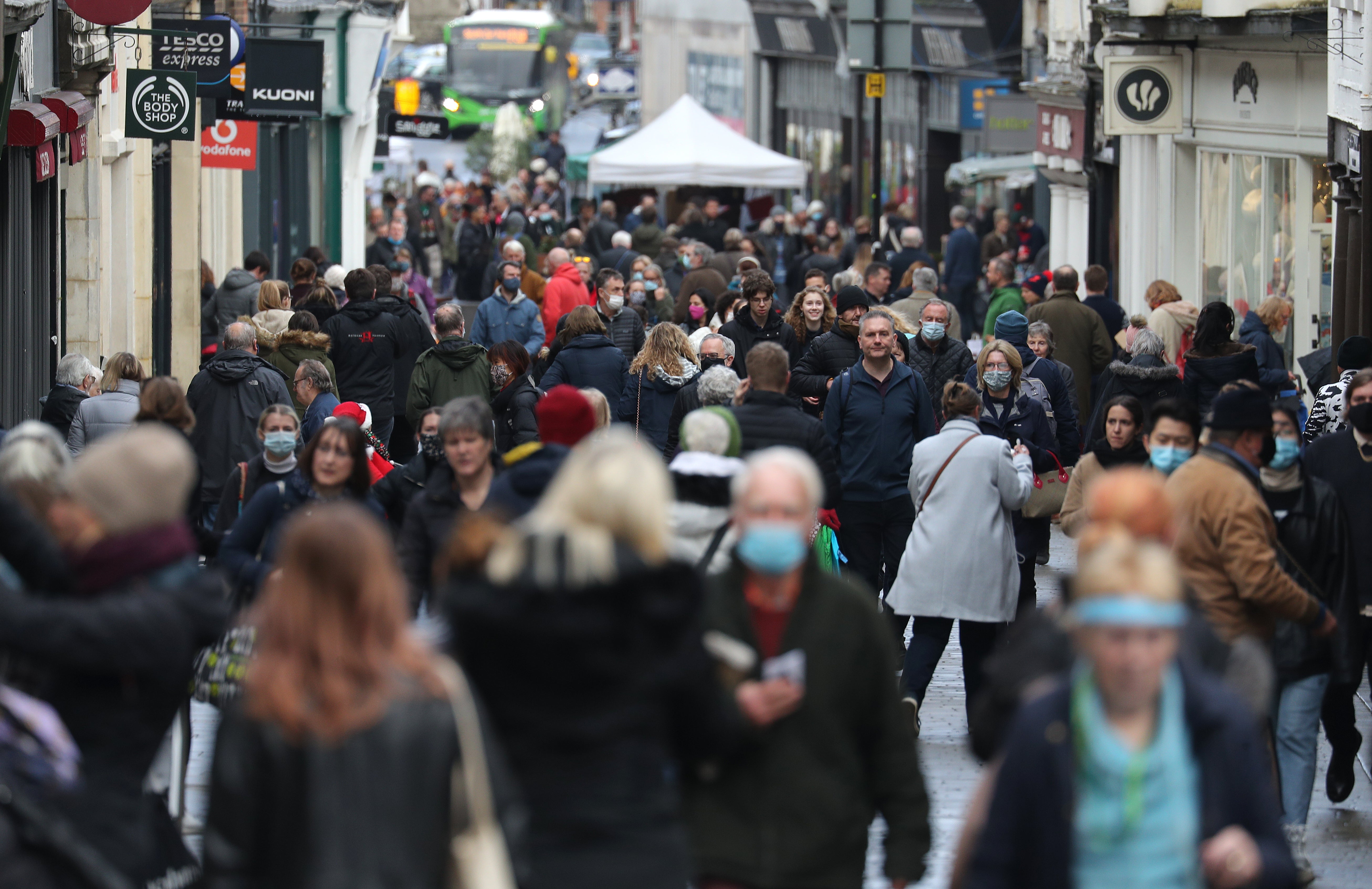Economy sees stronger rebound in fourth quarter, but consumer spending falters
The Office for National Statistics said the economy accelerated to 1.3% growth at the end of 2021, compared with the initial estimate of 1%.

Your support helps us to tell the story
From reproductive rights to climate change to Big Tech, The Independent is on the ground when the story is developing. Whether it's investigating the financials of Elon Musk's pro-Trump PAC or producing our latest documentary, 'The A Word', which shines a light on the American women fighting for reproductive rights, we know how important it is to parse out the facts from the messaging.
At such a critical moment in US history, we need reporters on the ground. Your donation allows us to keep sending journalists to speak to both sides of the story.
The Independent is trusted by Americans across the entire political spectrum. And unlike many other quality news outlets, we choose not to lock Americans out of our reporting and analysis with paywalls. We believe quality journalism should be available to everyone, paid for by those who can afford it.
Your support makes all the difference.The UK economy grew at a faster pace than first thought in the final three months of 2021 despite the spread of the Omicron variant of coronavirus, according to official figures.
The Office for National Statistics (ONS) said economic growth accelerated to 1.3% in the fourth quarter of the year, compared with the initial estimate of 1%.
It marked a bounceback on downwardly revised growth of 0.9% in the third quarter of last year.
But the Bank of England and Office for Budget Responsibility (OBR) have forecast a hit to growth this year and next as the Ukraine crisis heightens the cost-of-living squeeze, with households and businesses expected to rein in their spending as prices soar.
In a sign of the impact of rocketing prices, the ONS data showed that household disposable income after inflation fell by 0.1% in the fourth quarter.
This meant Britons began dipping into the nest eggs they had built up during the pandemic lockdowns, with the household savings ratio falling to its lowest since the start of the pandemic, at 6.8% in the fourth quarter.
Consumer spending was also revised sharply downwards, from quarter-on-quarter growth of 1.2% previously to 0.5%.
The OBR warned last week that households will suffer the biggest fall in real incomes since records began in 1956 as it forecast inflation will peak at 8.7% in October.
The ONS said gross domestic product (GDP) was 0.1% below where it was before the pandemic and within touching distance of its pre-Covid peak in the fourth quarter.
But revisions to GDP figures for the past two years means the economy grew by 7.4% in 2021 – still a record rebound but lower than the 7.5% initial estimate.
The ONS said this comes after it revised the record-breaking GDP drop at the height of the pandemic in 2020 to 9.3%, against the 9.4% first estimate.
Martin Beck, chief economic adviser to the EY Item Club, said while the economy enjoyed a solid end to the year, the recovery in consumer spending was already starting to lose momentum, even before the inflation impact from the Ukraine war.
He said: “The momentum behind the consumer recovery has faltered.
“And with the household saving ratio now below the average of the decade before the pandemic, the scope for households to offset the squeeze on real incomes by saving less is looking more limited.”
The ONS said the stronger GDP figures for the fourth quarter were due to a rebound in the manufacturing sector, which expanded by 0.4%, against the initial estimate of zero growth.
The latest data confirmed the economy contracted by 0.2% in December as the hospitality and leisure sector felt the brunt of Omicron and related Government restrictions.
Monthly data has since shown a return to growth in January, with GDP rising by 0.8%.
ONS data also out on Thursday shows Britain’s current account deficit – the difference between the value of the goods and services the UK imports and the goods and services it exports – narrowed to £7.3 billion in the fourth quarter of 2021.
This was helped by a £4.7 billion surplus in the balance of UK investment income abroad and foreign investment income in Britain – the first surplus since 2011.